8. “To Live” – Ge You (Yang Yimou, 1994)
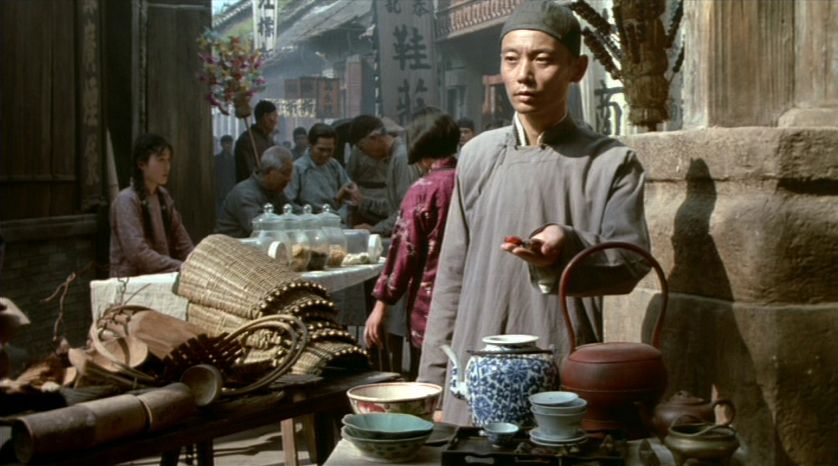
The first half of the 90s was the pinnacle of Chinese cinema, when the directors of the fifth generation released a masterpiece after masterpiece. Gong Li was at the center of many of them and for good reason; she is outstanding wherever she is, but in the best movie that the wave threw out, one man managed to emerge to the surface. Ge You ideally did the work of a sinful father who tries to survive in the turbulent years in China during the middle of the 20th century.
While the role on a whole is fantastic, one particular scene shows what a grandeur You is. In an ironic game of fate, You encounters the execution of landlords, a class he belonged to in his youth. One of the soon to be dead is his former “friend” to whom he lost everything in a gamble, and who made him a peasant. With the knowledge of what kind of destiny could await him, he is overflowing with happiness, sadness and primarily fear all at the same time. That is manifested in both his mental and physical state. That scene alone cemented his status.
7. “In the Mood for Love” – Tony Leung (Wong Kar-Wai, 2000)
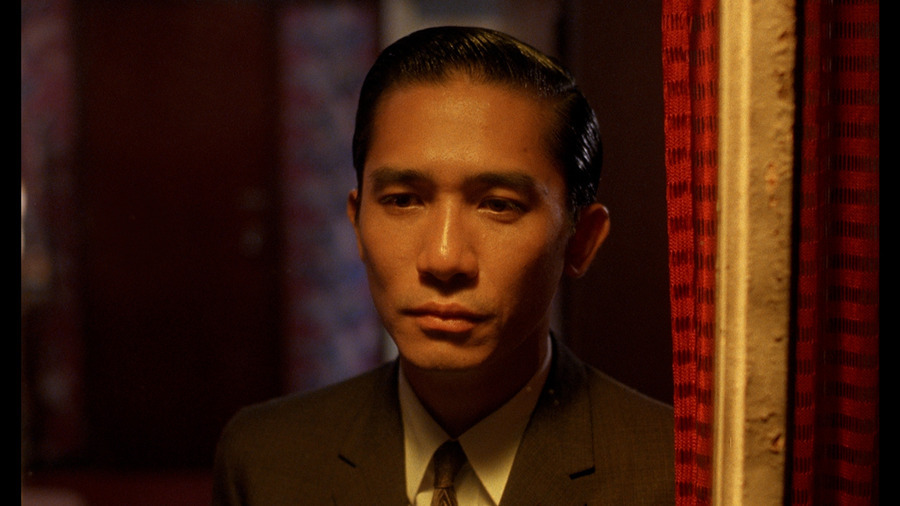
Bright neon lights, a cramped space and a lot of people, and yet loneliness fills the air. Who better to make a shift in that circumstance than Wong Kar-wai’s muse, Tony Leung? His constant collaborator from the early 90s adapted quickly to the melancholic roles that the director wanted, and where better to showcase them than in a story about two unfortunate lovers?
Together with his partner Maggie Cheung, he sinks into an odyssey of sorrow, where happy moments are brief and rare and where the realization that you cannot be with a person you love is all present. Leung easily pulls in the viewer to share with his joy and sadness, and by the mysterious end, with the magic of his acting, you too will feel emptiness in your soul.
6. “The Player” – Tim Robbins (Robert Altman, 1992)
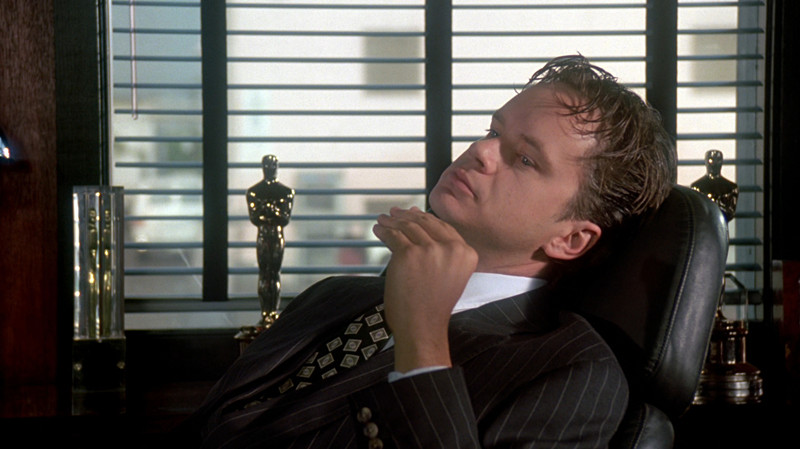
Those accustomed to Tim Robbins as Andy from Shawshank will be hugely surprised with this performance. This is a satirical (if mild) look at the Hollywood machine and the malicious atmosphere that surrounds it.
You can’t say that Robbins’ producer is an evil person, but he omits an aura of smugness; he is the manipulator in this situation, tailoring this entire engine so he can win the happy Hollywood ending. The screenplay helps in a big way, but it looks almost impossible with what cogency and ease Robbins sells his cynicism. It’s almost like it was never different.
5. “Le fils” – Olivier Gourmet (the Dardenne brothers, 2002)
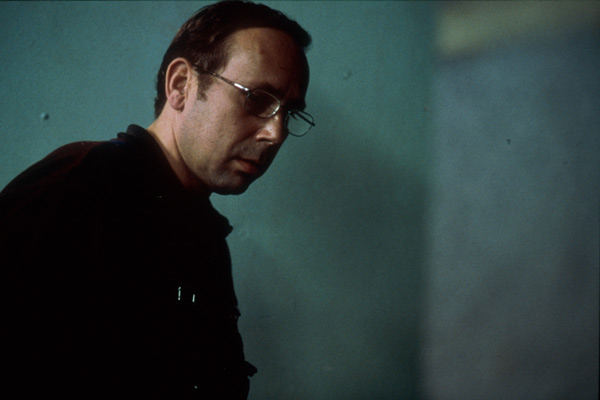
When you become a regular associate of the Dardenne brothers, a pair of directors who are “notorious” for the maximum effort they require from their actors, you know you have a job with masters of the craft. Olivier Gourmet is a person with complete control over his actions.
With one move of his face he transitions from calmness to madness caused by fury. This is a difficult drama with an emotionally draining theme, and Gourmet makes sure that the pain he feels is adequately transferred to the viewer. And for that, he deserves all accolades.
4. “This Sporting Life” – Richard Harris (Lindsay Anderson, 1962)
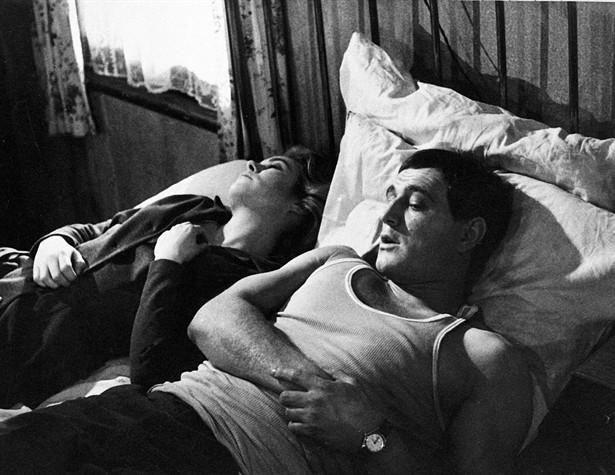
He was a professional rugby player, he was picked up on the streets, and he delivered one of the finest roles of the 1960s. That is the story of “This Sporting Life” and its star Richard Harris. The Irish actor had an outstanding career in the following years but this one, of a rough rugby player, remains his high point. Here, he is a time bomb.
On one hand, he expresses the features of Kowalski from “Streetcar” – he’s truly loving, but because of his history and nature he cannot show it in a socially acceptable way. On the other hand, he is like Jake LaMotta, driven by his primal animalistic needs. Harris is mad in every frame he’s in, and it is hard to say you can enjoy it when every moment you are afraid of this impregnable force. And for that, he’s magnificent!
3. “Z” – Jean-Louis Trintignant (Costa Gavras, 1969)
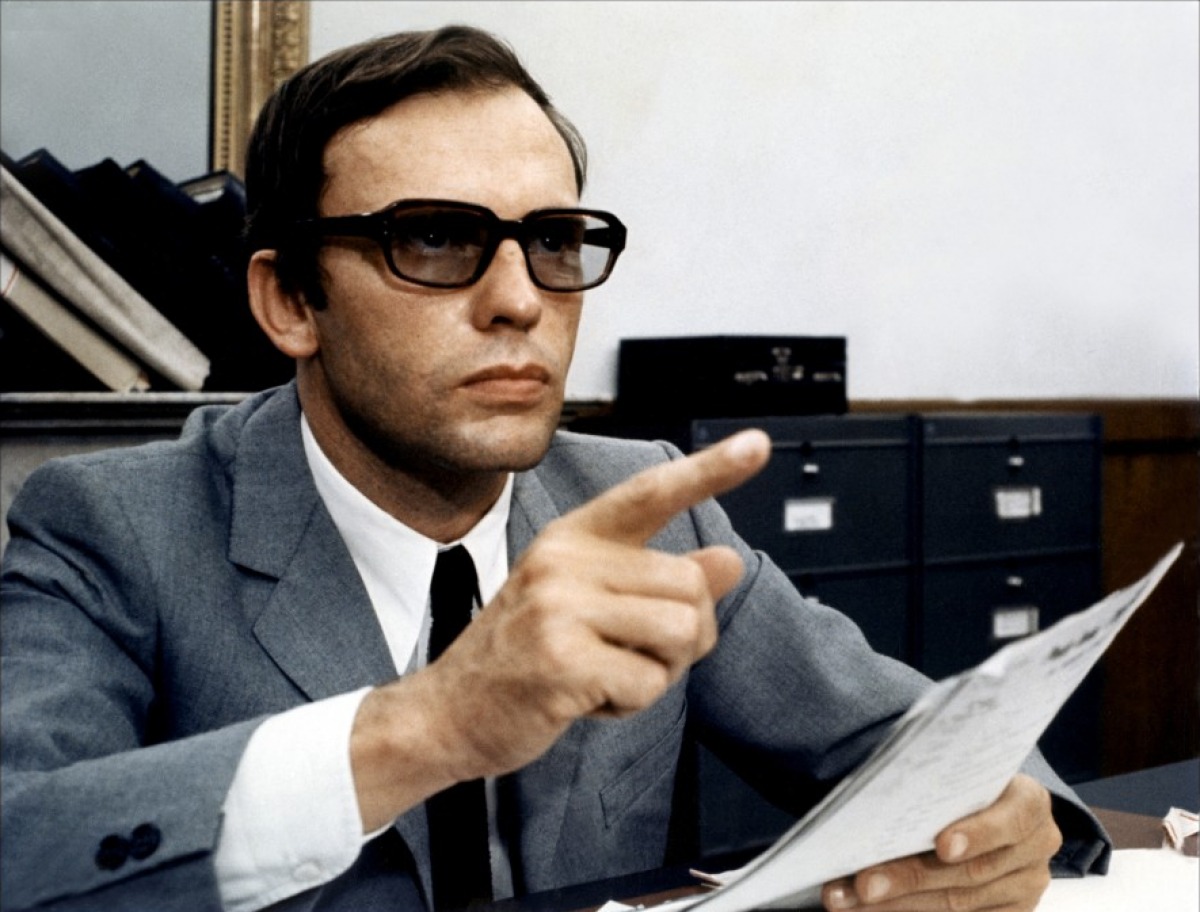
Jean-Louis Trintignant is a giant of European (and world) cinema. His opus included diverse but fascinating roles, ranging from a mute gunslinger, to a spineless conformist, to a husband in his twilight years dealing with the serious illness of his spouse. His most refined hour came in 1969 with the role of the prospector in this heart-stopping thriller simply called “Z.”
Always with shades, with a strict and dominant demeanor, Trintignant’s character is the bastion of justice, the one who tries to crack the conspiracy that overcomes this corrupt world. With his every appearance on the screen, the viewer feels like the truth will come out at a brighter time. While the final result will not be the most congenial, Trintignant’s character is the guy whose ideals we strive to have.
2. “Kiss of the Spider Woman” – William Hurt (Hector Babenco, 1985)
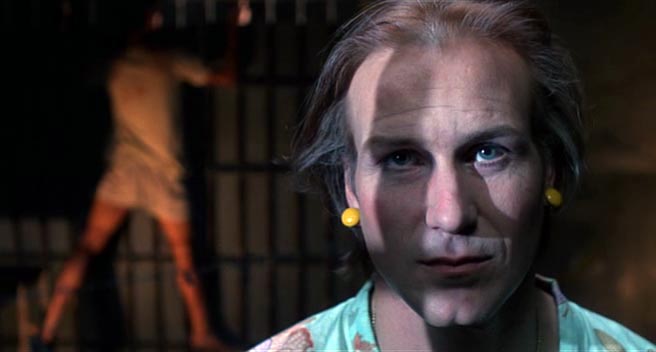
Another game changer, William Hurt’s role came at the perfect moment. AIDS paranoia was in full swing when the movie was released, and the positive view of LGBTQ characters, which started in the 70s, regressed again due to fear of this illness. To see a gay character without stereotypes, shown as a human being, was as controversial as it was eye-opening in 1985. It may be hyperbolic to say, but the biggest credit goes to Hurt and Hurt alone.
In his acting, we can see the care with which he dedicated himself to presenting the flamboyant character of Luis Molina. Every move and every pronounced sentence gives a bit of insight into the life the prisoner leads, and it is done with extraordinary elegance. The relationship he has with his cellmate is also one for admiration; he begins with prejudices, but after time passes, like the audience, he begins to accept him as a person rather than a walking caricature. A performance that needs to be remembered, both for its greatness and its importance to the medium.
1. “Naked” – David Thewlis (Mike Leigh, 1993)
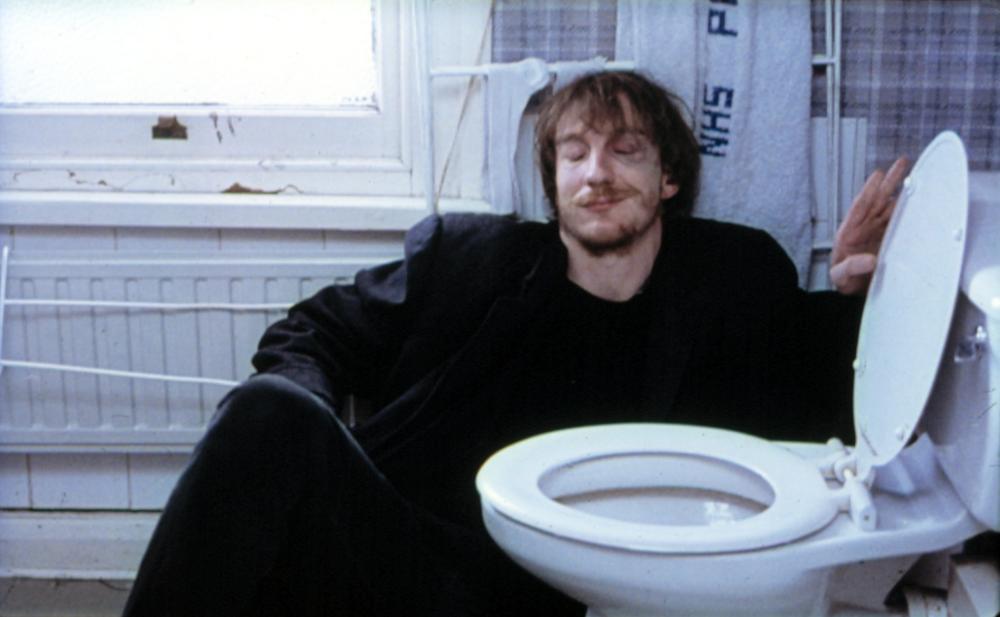
Some films penetrate through the soul and leave a horrible impression with their striking and terrifying pictures and scenes. Mike Leigh’s “Naked” is not one of them. His “weapon of choice” is words. In the center of this is David Thewlis’ Johnny. He is a monster. He doesn’t murder anyone, but this faltered intellectual, dressed entirely in black, devastates others’ beliefs and thoughts with his enormous knowledge.
The monologues (or dialogues) he leads are for years to come. Thewlis releases such an ominous aura that an intimate human relationship is a distant dream. He is a beast. Trying to seduce a desired person in one minute, only to embitter the life of the naïve one who gave him attention. After the end of those hard two hours, Johnny will haunt you, in dreams or in reality. From this terrific role, the actor himself didn’t recover.
Author Bio: Kosta Jovanović is a defectolgy student from Belgrade, Serbia who in his free time (and he has a lot of it, for better or for worse) watches movies from all genres and all countries. While he wants to make films himself one day, for now he is focused on his writing and film critique career.